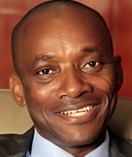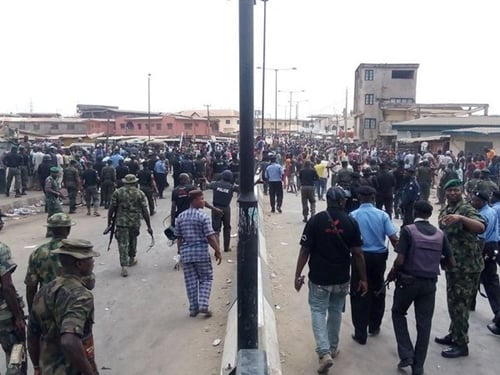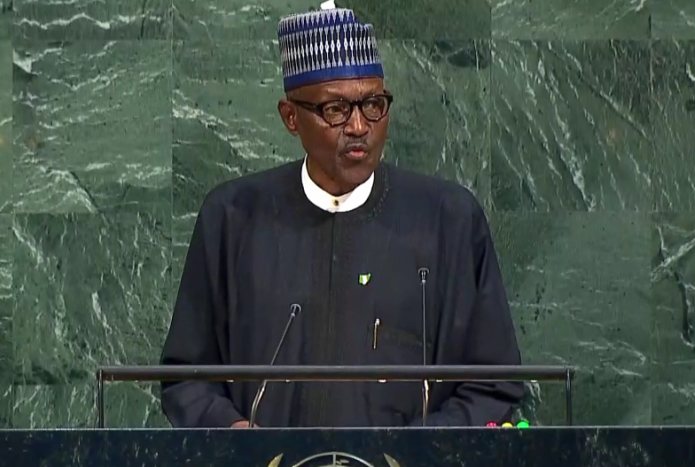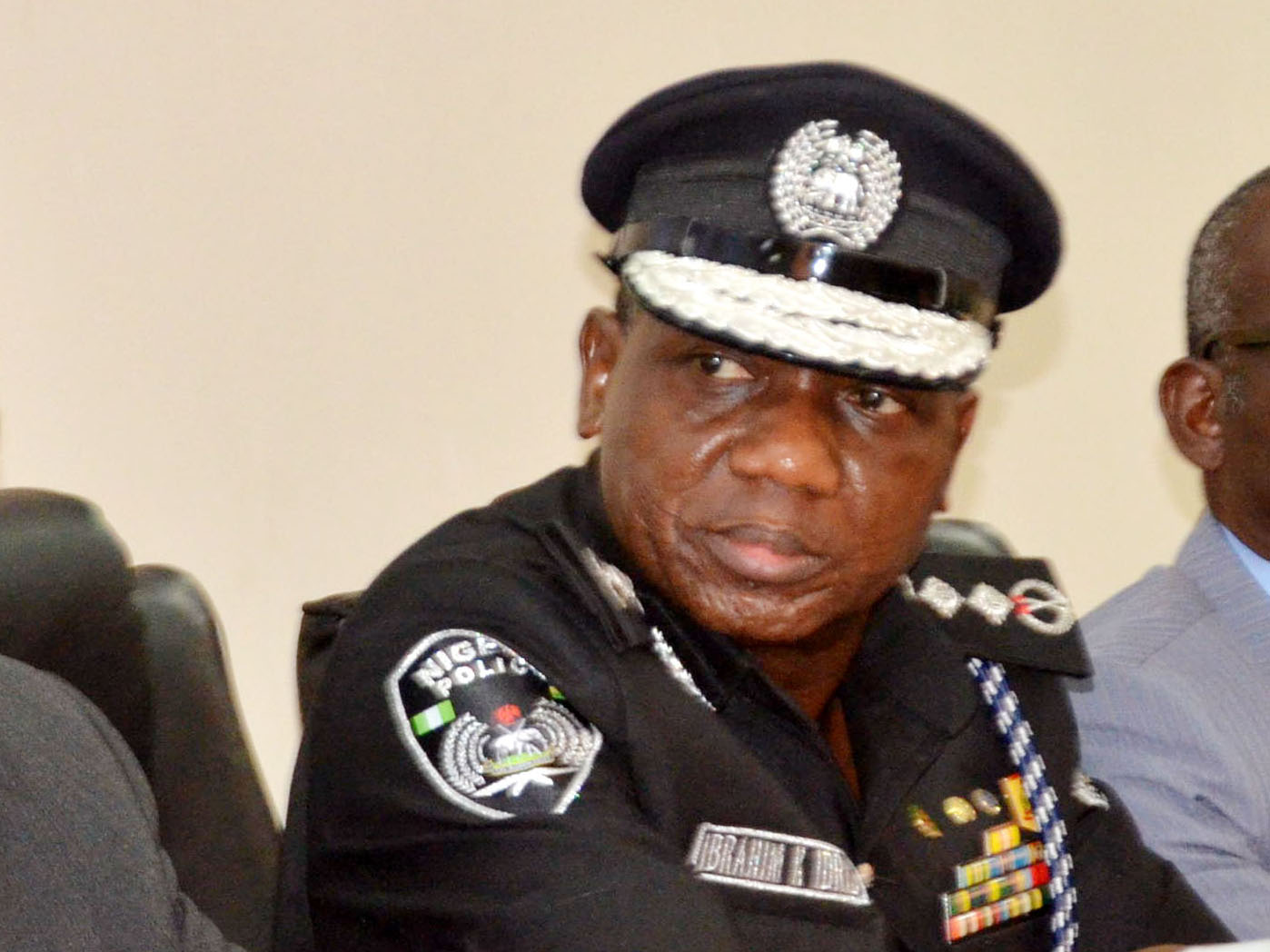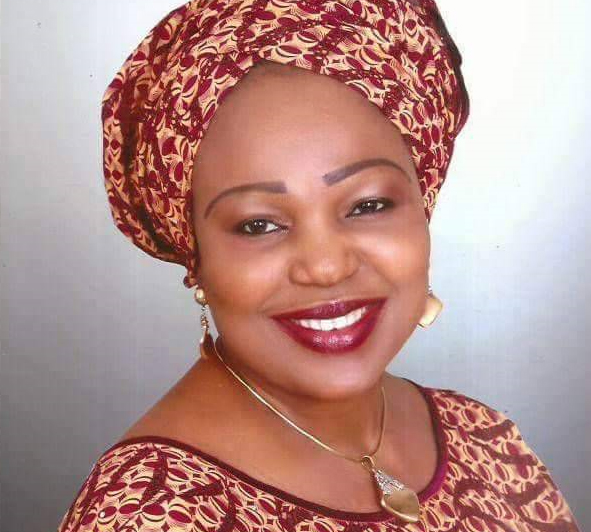Nigeria today is trapped in the cusps of protests and agitations, sometimes violent and sometimes peaceful. It is arguable that, perhaps except in the heyday of Abacha’s brutal military dictatorship, Nigeria has never faced this degree of militant opposition against it by its citizens and citizens groups. Different social and political groups are challenging the legitimacy and utility of the Nigerian state. It is ok to argue that there are violent challenges against the liberal concept of the nation-state across the world so Nigeria’s present predicament should not be exaggerated. But the point is that Nigeria’s crisis today is different and aggravated because it tugs at different points of nationhood. It is not just a crisis of leadership. It is not just a crisis of institutional legitimacy. It is also a crisis of identity and survival, not just of the entity itself but also of the people who seemed trapped in the malfunctioning balloon.
Anyhow we conceive the various crises afflicting Nigeria today we need to a matter of urgency develop a strategy of containment in the short time and of resolution, in the long term. Nigeria needs to wake up to the fact that the present crisis is not completely deja vu. We have seen crisis in the past, but not exactly of this nature and this magnitude. Therefore, we need to awake to the fact that our repertoire of institutional practices for crisis management may be inadequate for this crisis and needs retooling. As the Marine Manual of Warfighting cautions, we should not base strategic action on the routine. Rather we should base it on awareness of how the environment is changing.
The present crisis is made more pernicious because of the extent that the Nigerian state has lost legitimacy and trust. Political authority is usually based on one form of legitimacy or the other. If the state has a monopoly of violence in a given territory as Max Weber famously observed, it is because it has secured the trust and faith of majority of the people. Contrariwise, the Nigerian state has lost tremendous trust and faith, especially under the present government that has, perhaps, unwittingly, promoted a divisive and disarticulate leadership has deepened the communication gulf between the people and the state.
So, in today’s Nigeria, the government is largely mute and incapacitated. The Nigerian government suffers a communication problem. It cannot speak to the concern of its citizens. This inarticulacy is further caused by its conservatism. Take for example, the growing determination of the Nigerian people to rethink the foundational basis of statehood, whether in form of restructuring or referendum. Whilst the clamor for restructuring and referendum is growing like wildfire, the government is playing deaf-and-dumb because of the strategic commitments of the managers of the state to the status quo. In fact, many of them are speaking above or below the heads of their citizens who are engaged in frenetic and existentialist soliloquies about the identity and utility of the Nigerian state.
Advertisement
As days wear on the crisis of legitimacy and utility of the Nigerian state complicates. The centers of agitations spread so fast. During the Jonathan administration challenges against the legitimacy and utility of the state was restricted to the northeast of Nigeria. Early in the Buhari administration it spreads to the Niger Delta even as the Northeast experienced some respite. Today, we have multiple centers of challenge across the entire geography of Nigeria. Southeasterners are challenging the legitimacy of the Nigerian state and demanding either dissolution or a fundamental renegotiation. The southwest would require a new Nigeria that either reverts to the pre1963 constitutional order or a clear confederacy. The Niger Delta militants and political nationalists are still demanding for resource control, which is a pseudonym for regionalism and confederacy. Northcentral has been the site of horrid violence instigated by alleged quest for fiefdom by the privileged Fulani.
We never had it this bad. The highpoint of this is the quit notice issued by some coalition of so-called northern youths on Igbos living in northern Nigeria. That quit-notice characterizes the new criminal brigandage at the heart of the present political disorder. Add to that this unjustified and unconstitutional military annexation of the southeast and the state murder of innocent and not-so-innocent citizens.
These challenges pose severe problem for public leadership in Nigeria. The prospect of mass violence, of the magnitude that built up to the civil war, means that Nigeria must act quick to solve these issues behind the challenges in the medium to long term; and in the short time, develop framework for managing and containing them. Such a framework requires a strategic rethinking of the fundamental assumptions about the Nigerian state.
Advertisement
Distinguishing the Substantive from the Procedural:
Managing the spate of agitations and protests against the Nigerian state requires distinguishing between substantive and procedural issues. There are substantive issues to resolve. These include ethnicity, citizenship, religious freedom and revenue sharing. But there are also procedural issues, which relate to the framework for managing the inevitable crises arising from the failure to tackle the substantive issues.
The present crisis is a mutation of the past crises. Nigeria has refused to confront frontally, and resolve definitively, the crisis of nationality. This crisis consists in one simple problematic: should Nigeria be a modern civic and democratic state built on the foundation of a single and robust citizenship; or should Nigeria be a multiethnic and religious state that accommodates different citizenships based on religion and ethnicity. At the eve of its independence Nigeria, unconvincingly and reluctantly ‘voted’ to be a feudal, multiethnic and multi-religious state. Ever since Nigeria has been fending off rebuttals of this error and has been refusing to reverse itself.
But the battle has come to a head. Nigeria must revise itself in a fundamental sense and recreate itself in such a way that it can reinvest itself with legitimacy and trust. But Nigeria’s peculiar political institutional set-up may mean that this crisis will not be resolved as quickly as desirable. So, we can bet that these protests and agitations will continue.
Advertisement
This paper will focus on the procedural framework because it provides the holding environment to tackle the substantive issues. Therefore, the urgent task is to create procedural safeguard for the Nigerian state as it struggles to resolve its existentialist challenges.
The Reality of Dissent:
The first pillar of the procedural framework is a mindset change. Government’s capacity to effectively manage the ongoing agitations and protests will depend on its ability to switch paradigm. First, it must acknowledge the reality of dissent. We now live in a world of empowered bitterness. Globalization has built expectations of good governance, social welfare and dignity for everyone everywhere. But our politics and policies have lagged behind our promises. So, there is so much resentment.
In Nigeria, this is more so as we have woefully failed to produce even the most basic social and physical goods. Unemployment is now a scourge, a pandemic that threatens to overthrow the social order. Yet, the politics of ethnic and elite competition for power ensures we cannot step up to the quality of leadership required to mobilize towards the right direction and the right action.
Advertisement
Nigeria’s autocratic and conservative leadership has been dealt a big blow by the invasion of new media. It has empowered bitterness against the state. We can afford to discountenance an irritating complaint in Kaura Namoda or Agatu when it has no means of speaking to other complaining voices across the country. But now with a laptop and a cheap data plan that voice can rally a million other voices to trouble the diffident and arrogant state. So, the game has changed. The Nigerian state, nay any modern state, is no longer a sovereign that can afford to disregard the people’s voices and have a good night sleep. The new media has significantly scrambled the Westphalia and the Sultanate state models. Today’s state now must negotiate its legitimacy and existence daily by paying attention.
The wisdom is that a focus on law and order state is a huge mistake. Dissent will continue to be part of the modern state until it is able to align expectations and results. And this will not happen soon. The new mindset is to acknowledge that we will now live with the reality of dissent by most of our citizens. This enables us to substitute exasperation and coercion with anticipation and cajolery.
The Contending Versions of Government:
Advertisement
The reality of dissent and the ubiquity of the empowered bitter citizens throw up the challenge of how government should respond to agitations and protests. Government has a self-image, which determines its response to crisis of governance. For too long Nigerian governments have regard themselves as a coercive and prescriptive state that directs and commands, rather than a mobilizing and persuading state nudging citizens to a desired direction. This image relates to the concept of ‘governmentality’ rather than ‘governance’ as the modus operandi of the public sector.
As an adviser at the foreign affairs ministry I saw this model in operation. Whenever issues of state policy is to be determined you see an exclusive focus on getting the top guns of the military and paramilitary agencies to the table. No one remembers the members of the epistemic and civil society groups who may possess more and better knowledge on the issue. That is the idea of ‘governmentality’. It believes that only official institutions that have stakes in managing public interest. It is this same mindset that encourages the Nigerian security institutions to shut itself away from meaningful engagement with the civic community because security is a business for officialdom only. Elsewhere in the world, governance has moved beyond officialdom and government work together with civic communities in a cooperative search for security and development. In those places the state has been civilianized.
Advertisement
Changing the DNA of the State Institution:
We cannot effectively manage agitations and protests if we don’t civilize the DNA of state institutions in Nigeria. One of the enduring legacies of colonialism is the pathological constitution of state institution with logic of repressing the people. So, in spite of the many welfare and infrastructural challenges of the Nigerian Police, its central problem remains that its DNA is wired as a colonial force to repress restive natives. Up till now the police continues to see itself as an instrument of the ruling class or ruling government to brutalize the people if they challenge the order.
Advertisement
This sort of policing will not work in today’s world. Clearly, the policing institutions lack the capacity to stop-and-smash at will. Insurgents and sundry rebels have capacity to hit and run in an asymmetrical war. Again, dissent is now virulent so maintaining the colonial legacy would mean a totally illegitimate state. And in a situation of underwhelming state power instability will be the order of the day. So, it is in the best interest of the state to move away from the response suggested by the DNA of repression.
Take for example, the unprovoked killing of activists of the Indigenous People of Biafra (IPOB) who were rallying in Port Harcourt to celebrate the election of Trump as President of the USA. Even as the celebration of Trump’s election may be senseless the repression of the rally is provoking and needless. It proceeds from the error that whatever roils the emotion of those in power deserves to be clamped down.
As we build up to a possible solution of the substantive issues of citizenship, nationality and development in Nigeria we would need a new normative framework for management of dissent and disagreements in the polity. At the foundation of this new institutional personality would be security institutions that conceive themselves as providers of public security and not enforcers of elitist preferences and convenience.
The Imperative of Rule of Law (Human Rights):
The Nigerian security agencies have terrible human rights record. This stretches from military to civilian administrations. Under Abacha the security agencies became Gestapo and henchmen, killing and maiming anyone who spoke up or marched against the puny dictator. The Amnesty International indicted the military under President Jonathan for violation of human rights standards in its conduct of war against terrorism. The same organization has roundly accused the Buhari government of gross violation of human rights in its cold-blooded killing of hundreds of IPOB and Shiite activists who were neither armed nor violent. Refusal to comply with the rule of law and violation of human rights in security engagement are established protocol in security management in Nigeria.
The problem is that these institutions have a dismissive view of human rights and the need for rule of law in security operations. Raised in the political culture of impunity of an unaccountable state they consider human rights as dispensable side-constraints and not enablers of public security management. The recent efforts of the military, though belatedly and perhaps halfhearted, to establish an army human rights office is in the right direction. Hopefully, this center will mainstream human rights norm in the operative manual of all security operations in Nigeria.
The resolution of the vexing national question will take long and probably turn violent and militant at some point down the road. Therefore, it is very important for the police and other security agencies to develop new cognitive capabilities that see human rights not as noxious constraints but as directive principles for the use of legitimate force.
The Inevitability of Civility: the Argumentative State:
In 21st century the modern state can be nothing but a civil state. A civil state is a state that replaces violence with arguments in dealing with dissenting citizens. A civil state will necessarily be an argumentative state (I borrow the phrase from Amartya Sen in his work on the argumentative India). One of the effects of social globalization is the ubiquity of debates and commentaries in all forms and shades. Governance now requires a herculean ability to monitor, tract and engage wherever political and social debates are going on. The traditional sites of ideation and ideological mobilization are no longer eminent and influential. The social media is now a respectable and influential platform for ideation and ideological mobilization.
The Nigerian government is growing its influence in twitter, Facebook and other new media. Communication handlers of the government and its agencies are sending videos and audios of government activities. Even if many of these efforts reek of much incompetence, they are commendation shift of mentality. But it is not enough. Visibility in the social media and felicity in twitter and Facebook do not make an argumentative state.
An argumentative state must understand the unique importance of ideas and words in establishing and maintaining political hegemony and legitimacy in an era defined by value incommensurability and multipolarity. It must be willing to enter into debate with those who propose alternative policies and challenge discursively those who challenge its legitimacy or utility. The argumentative state cares about cognition more than it care about obedience. So it does insist on breaking the will of the citizens though violence but rather focuses on bending the will of the citizens through persuasion. An argumentative state is a mobilizing, rhetorical and communicative state.
We are seeing some signs of the argumentative state in the manner in which Osinbajo is carrying on as Acting President. He is arguing his way across the country. Instead of shouting down or clamping down on those asking for restructuring and referendum the Acting President is providing justification for the continuity of the Nigerian federation as is. He is marshaling arguments that the problem with Nigeria is not structure but character of government. He does not need to convince everyone to be effective. But he is pushing citizens towards the ideals of deliberative democracy, and entrenching the value of public reason, which is the true character of a civil state.
A Weak State, a Failing State:
As a teaching fellow at the Kennedy School of Government I ran into a stormy debate on whether Nigeria was a failed, failing or malfunctioning state. I had refuted the claim that Nigeria was a failed state on account of its very poor record on social services. But that was in 2002. Today, I can’t make such argument. Nigeria is listed as one of the countries showing strong signs of failure. Nigeria is a fragile state because many non-state actors challenge its authority within its territory. Besides being fragile Nigeria is also extremely weak. Its clout is much diminished. Its inability to satisfy the social and economic needs of its citizens now combines with its inability to effectively police its territory.
As we enter this long winter of agitations and petitions the Nigerian state should not push its power too much to the extent of focusing on exterminating all forms of dissent and agitation without engaging in good faith dialogue. We are a weak state that has been increasingly weakened by the loss of trust and competence. Bluffing about capacity to ‘deal decisively with troublemakers’ instead of providing justification and incentives for peaceful behavior will be an unwise approach to managing dissent at this stage of state incapacity
Views expressed by contributors are strictly personal and not of TheCable.
Add a comment
